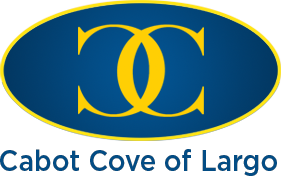Watching our loved one’s age is an emotional journey filled with love, memories, and sometimes, difficult decisions. It can be heart-wrenching to realize that they might require more help than we able to provide at home. Assisted living facilities are there to offer a compassionate and caring environment tailored to the growing needs of aging seniors, supporting them with daily activities while preserving their dignity and independence. Here are some key signs that may help guide you in recognizing when a loved one may benefit from the loving care provided by assisted living communities such as Cabot Cove of Largo:
1. Decline in Personal Hygiene
One of the most sensitive signs that a loved one might need assisted living is a decline in personal hygiene. If you observe that they are struggling with their grooming habits, such as not bathing regularly, wearing the same clothes repeatedly, or neglecting dental care or hair care, it may indicate they need extra support to maintain their personal care and hygiene.
2. Unexplained Weight Loss or Poor Nutrition
If your loved one is experiencing unexplained weight loss, one of the reasons may be that meal preparation, grocery shopping, or even simply remembering to eat have become more difficult. Proper nutrition is crucial for health, and assisted living facilities ensure residents receive balanced meals tailored to their dietary needs, promoting overall well-being.
3. Difficulty Managing Medications
Managing medications can be overwhelming, especially for seniors with multiple prescriptions. If you notice your loved one is forgetting to take their medications, taking incorrect dosages, or mixing up their prescriptions, it may be time to consider an environment where trained staff can ensure their medication needs are met safely and consistently.
4. Decline in Physical Mobility
A decline in physical mobility, such as difficulty walking, frequent falls, or trouble getting up from a chair, can signal the need for additional support. Assisted living facilities are designed to accommodate those with mobility challenges, providing a safer environment that reduces the risk of falls and injuries.
5. Memory Loss and Cognitive Decline
Memory loss and cognitive decline can be particularly distressing. If your loved one is frequently forgetting important appointments, getting lost in familiar places, or showing signs of confusion, it might be time to consider a setting where they can receive specialized, compassionate care designed to support their cognitive health.
6. Increased Isolation and Loneliness
Social connections are vital for emotional well-being. If your loved one is withdrawing from social activities, avoiding friends and family, or expressing feelings of loneliness, it might be a sign that they need a more engaging and supportive community. Assisted living communities offer a wealth of social activities and opportunities for connection to help alleviate feelings of isolation.
7. Unsafe Living Conditions
Take note of the living conditions in your loved one’s home. If you observe clutter, hoarding, or unsafe environments (e.g., electrical hazards, unclean conditions), it may indicate they are no longer able to maintain a safe and orderly home. Assisted living facilities offer a clean, secure, and well-maintained environment that prioritizes care, comfort, and safety.
8. Caregiver Burnout
Caring for a loved one can be both rewarding and exhausting. If you are the primary caregiver and feel overwhelmed, exhausted, or unable to provide the level of care your loved one needs, it might be time to consider assisted living, to get the professional care and support you need to allow you to focus on being a loving family member, rather than a full-time caregiver.
Making the Transition
Recognizing the signs that a loved one needs assisted living is a step filled with compassion and concern for their well-being. Approach the conversation with empathy, emphasizing the benefits of assisted living and how it can enhance their quality of life. By being attentive to these signs and taking proactive steps, you can help your loved one transition to an environment where they receive the care and support they need while maintaining their sense of independence and dignity. Involve your loved one in the decision-making process and explore potential facilities together to find the best fit. Please contact us at 727.539.1200 to learn the many reasons why our senior residents love Cabot Cove of Largo and make sure to schedule a tour.
